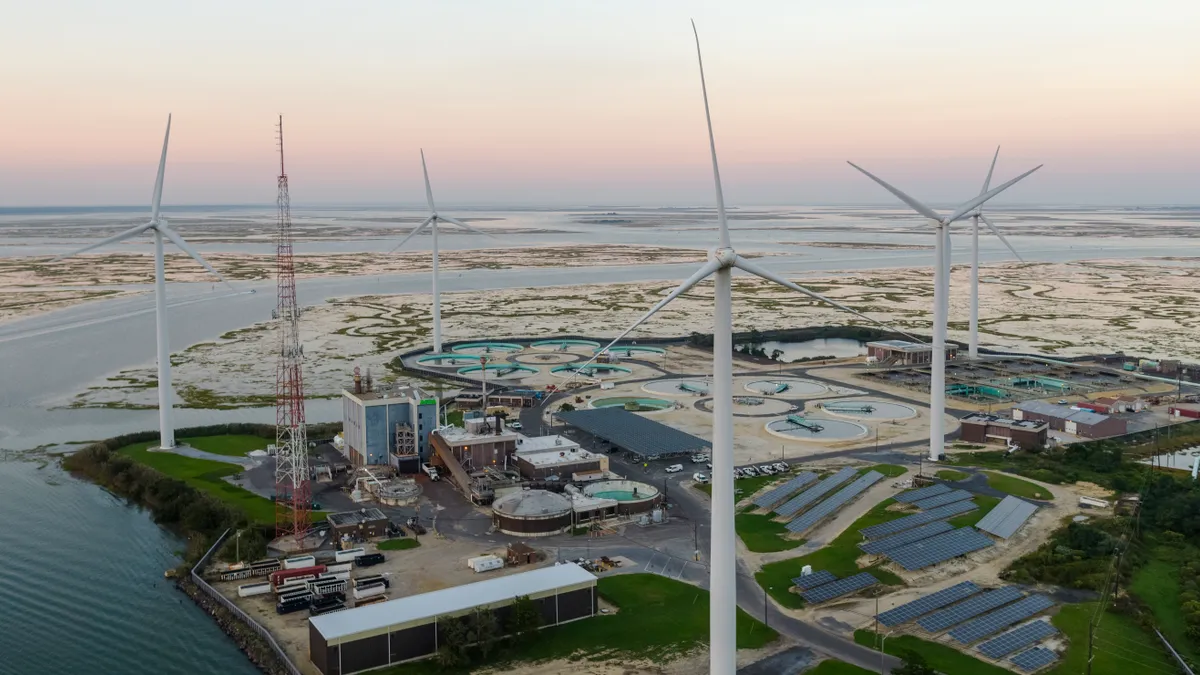State public utility commissions should re-examine cost assumptions in planning and procurement processes that were made before the tax credit-laden Inflation Reduction Act was signed into law in August, according to a report released Thursday by Energy Innovation Policy & Technology.
Partly driven by the IRA’s tax credits for clean energy resources, the U.S. could get about three-quarters of its electricity from emissions-free sources by 2030 and cut power sector greenhouse gas emissions 67% to 78% by 2030 from 2005 levels, according to modeling by Energy Innovation and three other organizations, the energy policy group said in the report, Implementing the Inflation Reduction Act: A Roadmap for State Electricity Policy.
However, there are barriers to achieving the IRA’s potential and “significant uncertainty” around the law’s potential effects, according to Energy Innovation.
“The legislation provides huge incentives to reduce electricity sector emissions, but successful implementation requires rapid deployment of infrastructure — something the U.S. has struggled with in recent history,” Mike O’Boyle, Dan Esposito and Michelle Solomon, the report’s authors, said.
State utility regulators will have an “outsized role” in implementing the IRA’s tax benefits, which will make clean energy contracts cheaper and provide low-cost capital for coal-fired power plant retirements, Energy Innovation said.
“Under their authority to set just and reasonable rates, PUCs should insist that utilities redo integrated resource plans and resource solicitations, despite the procedural headache,” the energy policy group said.
State regulators should require utilities to fill their resource needs through all-source solicitations, such as one used by Xcel Energy in Colorado that produced record-low wind, solar and storage bids, according to Energy Innovation.
“With the tax law changes in the IRA, utilities may be more successful at competing for these contracts, though safeguards against the exercise of market power are crucial,” Energy Innovation said.
Utility commissions should take a proactive role in tapping into funding to support communities that relied on fossil fuels like coal, according to the report.
“A PUC’s role will be to encourage utilities to proactively seek federal funds including loan guarantees to lessen the economic impact of coal replacement, gather stakeholder input on what location-specific procurement is possible and in line with community development goals, and consider putting temporary community transition funding into rates,” Energy Innovation said.
State utility commissions should look for ways to speed up the generator interconnection process and consider the need for additional transmission to help bring clean energy resources online sooner, the policy group said.
In addition, regulators should maintain a “healthy skepticism” on carbon capture, utilization and sequestration projects, according to Energy Innovation.
“Due to known risks of the technology’s performance, utilities should be wary of pursuing CCUS retrofits on coal-fired power plants, opting for proven renewable and energy storage alternatives wherever possible,” the policy group said.
Energy Innovation urged state lawmakers to adopt or increase clean electricity standards, establish energy storage targets and create state transmission authorities.
Also, state legislators in the West and Southeast that are not a part of a regional transmission organization should require their utilities to study, join or form an RTO, the policy group said.














